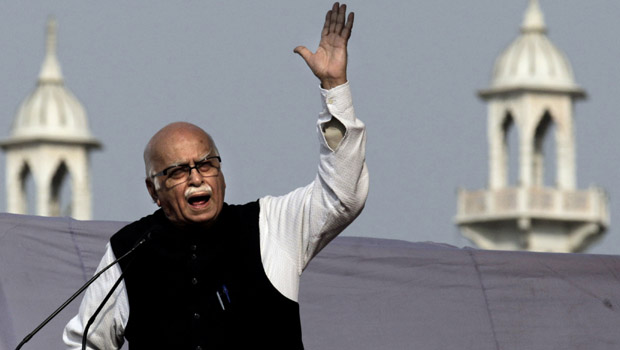Prime Minister Manmohan Singh’s coalition faces multiple political crises, including multi-billion dollar graft scandals and surging food prices that have sapped its ability to push policies to keep pace with growth of nearly 9 percent.
About 20,000 supporters of an opposition alliance led by the Bharatiya Janata Party (BJP) thronged parts of central New Delhi, bringing to the streets a protest that has seen an assertive opposition stalling the last parliament session.
Protesters shouted slogans accusing the government of failing to curb corruption. Many participants, including women and children, wore garlands of onion to protest against a sharp rise in the price of the staple.
“This is the exhibition of public anger, the beginning of a large nation-wide protest against corruption and inflation,” BJP spokesman Prakash Javdekar told reporters.
Addressing a rally, BJP leader Arun Jaitley called for Prime Minister Singh’s resignation on “moral grounds” if he failed to order a wider parliamentary probe into allegations of corruption in the allotment of lucrative telecoms licenses in 2007-8.
“The government cannot function in an atmosphere of suspicion,” he told the rally held near the Mughal-era Red Fort.
The opposition has threatened to shut down a February session of Parliament if the government does not agree to a joint parliamentary inquiry, which has wide power to summon officials, into a $39 billion mobile phone license scandal.
Telecommunications Minister Andimuthu Raja was sacked because of the scandal.
Leaders from Singh’s Congress party have been linked to graft during the Commonwealth Games and in seizing prime property in the financial center of Mumbai.
The deadlock in Parliament has meant policymaking has drifted in limbo, economic reforms have been delayed and leaders including Singh have been accused of neglecting governance.
The opposition is hoping to be able to sustain the political momentum until the Parliament’s budget session in February with a two-month country-wide protest program. Some of the biggest state elections begin from May and stretch over the next two years.
But the Congress party hit back, accusing the BJP of acting against democracy by stalling Parliament.
“There are skeletons in everybody’s closet, so they can’t preach,” new Telecoms Minister Kapil Sibal told repoters. “Do not do anti-democratic actions, let the parliament function.”
Discontent over food price rises is another headache for Singh’s coalition government, eroding its political capital from an impressive election victory last year to push reforms.
Food price inflation has retreated over the past three months, but at 9.5 percent is a worry for the Congress party ahead of several state elections next year.
For instance, retail onion prices have more than doubled in the past week to 80 rupees ($1.77) per kg. Onions are a main ingredient in almost all Indian dishes.
Soaring onion prices have helped dislodge Indian state governments in the past, and rising food costs often spark street protests.
Financial markets have not reacted to the political crisis, but analysts say the opening of the February budget session in parliament will be a key test.









